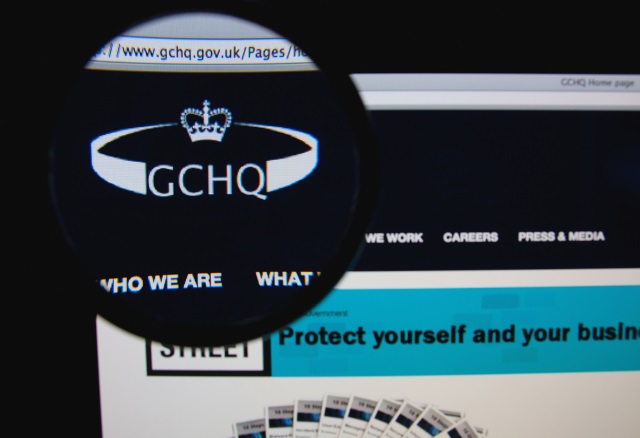
UK hit Islamic State with 'major offensive cyber-campaign'
The UK surveillance agency, GCHQ, has revealed that it launched cyberattacks on Islamic State. Speaking at the Cyber UK conference, GCHQ director Jeremy Fleming said that it had launched a "major offensive cyber-campaign" against the group.
He said that the attacks helped to stem the output of message from Islamic State (or Daesh) online. While Flemming said that a lot of the operation was "too sensitive to talk about", he was confident that it had been effective in disrupting the group's dissemination of messages.

GCHQ belives ISPs can prevent all DDoS attacks
The head of of the GCHQ believes that distributed denial of service (DDoS) attacks could be eliminated completely if internet service providers (ISPs) were to completely rewrite their software and its code.
The technical director of GCHQ's National Cyber Security Centre, Ian Levy, is already preparing to engage in talks with ISPs, such as BT, over how they could be the key to ending DDoS attacks. After the cyber attacks that occurred as a result of the Mirai malware were made public, GCHQ made it a priority to prevent further attacks that could be launched using the same measures.
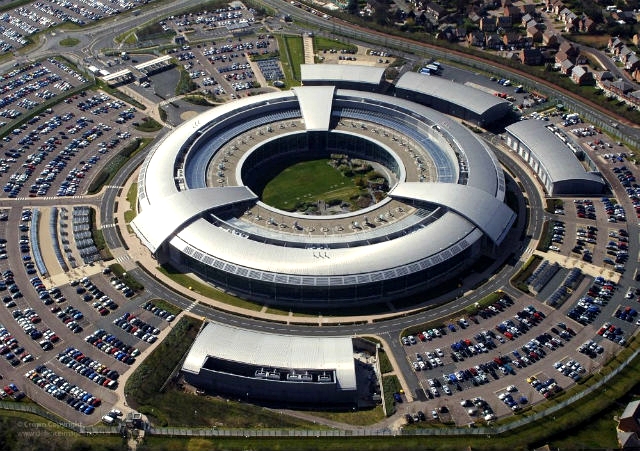
GCHQ arrives on Twitter to give a more public face to the spy agency
The UK's GCHQ -- like its US counterpart the NSA -- is an agency traditionally shrouded in secrecy. Tasked with the job of spying on all and sundry in the name of intelligence gathering, the agency has just joined Twitter, greeting other users with an unoriginal "Hello, world".
With the concerns about privacy and security that blew up in the wake of Edward Snowden's NSA surveillance revelation, spy agencies around the world have been on a mission to boost their public image. GCHQ -- complete with the blue tick reserved for verified accounts -- will use Twitter to "provide news, updates, and opinions".

GCHQ: US and UK tech firms need to work together to solve encryption challenges
The head of GCHQ, Robert Hannigan, has called for greater co-operation between tech companies and governments. Speaking at the Massachusetts Institute of Technology, Hannigan referred to the "highly charged atmosphere" surrounding the encryption debate in a barely-concealed reference to the on-going battle between Apple and the FBI.
He said that in the coming months Prime Minister David Cameron will set out plans to improve the relationship between tech companies and intelligence agencies. He was at pains to stress that the controversial snooper's charter (or Investigatory Powers Bill) would not be used as an excuse to allow governmental spying or to introduce a ban on end-to-end encryption.

Big Brother's crystal ball: China developing software to monitor citizens and predict terrorist activity
We've become used to the idea of online surveillance thanks to Edward Snowden blowing the lid off the activities of the NSA and GCHQ. While it's easy and natural to bemoan the infringement of privacy such surveillance entails, no one ensures as limited and controlled an internet as the Chinese.
There's the famous Great Firewall of China for starters, and as part of a counter-terrorism program the country also passed a law requiring tech companies to provide access to encryption keys. Now the Communist Party has ordered one of its defense contractors to develop software that uses big data to predict terrorist activity.

Court rules it is not illegal for GCHQ to hack computers
Privacy International has lost a court case that questioned the legality of GCHQ's hacking operations. The UK-based privacy and human rights charity launched a legal campaign after Edward Snowden revealed the spying and surveillance that was being carried out by the NSA and GCHQ.
In the course of the case, GCHQ admitted for the first time that it was involved in hacking devices and computers not only in the UK, but around the world. The Investigatory Powers Tribunal (IPT) ruled that activities such as the installation of keyloggers, the remote activation of microphones and cameras, and the use of malware by the intelligence agency is entirely legal.
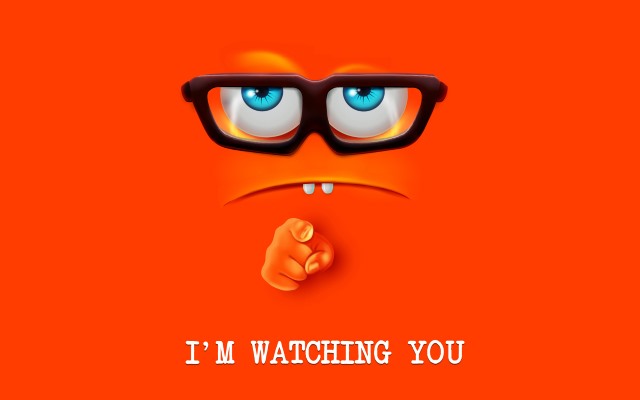
Connected toys and the IoT could be the next weapons of mass surveillance
Just a few days ago, we heard about the potential for the web-enabled Hello Barbie to provide hackers with personal data. Numerous vulnerabilities open up the potential for data to be stolen, but this could be the start of a worrying trend. If you thought the surveillance activities of the NSA and GCHQ are disturbing, things could be about to get much worse.
There is a movement underway that sees every conceivable device being transformed into a connected device. This is more than just the Internet of Things -- security experts are warning that not only could any devices connected to the internet (including web-enabled toys) could be used to spy on users, placing children at risk.

GCHQ accused of "persistent" illegal computer hacking
Court documents released during a court case brought by Privacy International show that GCHQ -- the UK version of the NSA -- has engaged in "persistent" illegal hacking. The targets of the intelligence agency's surveillance include computers and phones around the world without the need for individual warrants.
There is concern about the use of "thematic warrants" which allows GCHQ to hack computers with very little justification or oversight, and with very broad remits. Privacy International is involved because there are clear privacy issues involved in GCHQ's activities, and it is seen as being of greater importance than ever with renewed interest in the Investigatory Powers Bill.
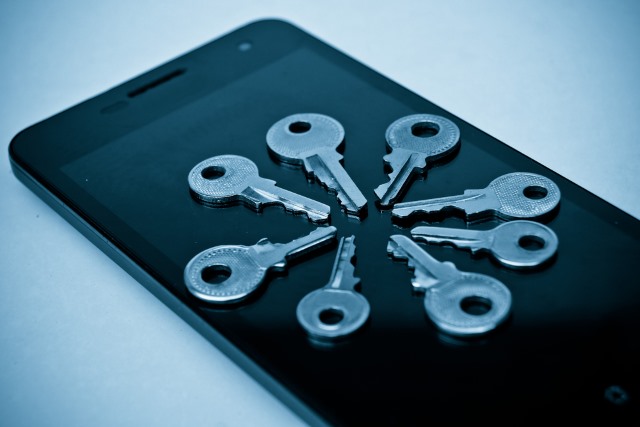
Most smartphone owners fear hackers, thieves and government control
Edward Snowden's NSA and GCHQ revelations seem to be unending. One of his more recent disclosures was that UK intelligence agencies had the ability hack and remotely control any smartphone.
A survey by Broadband Genie shows that smartphone owners are more than a little concerned about this, with more than half (55 percent) saying the possibility of remote control worries them. A similar number (53 percent) express concern that these surveillance and control powers are open to abuse, and nearly a quarter (24 percent) feel they are a breach of human rights.

We can't let governments use ISIS and Paris attacks as excuses to increase surveillance
The tragic events in France have, almost inevitably, led to renewed calls for increased surveillance of the internet. This cannot be allowed to happen; terrorism cannot be used as an excuse to infringe upon the privacy of millions of innocent internet users.
We have groups such as Anonymous taking a vigilante stance in a bid to drive ISIS from the internet, but governments have leapt on the massacres as a justification for additional snooping powers. This smacks very much of being a knee jerk reaction, and there is a very real danger that rushed legislation will cause greater harm than good.

The next target for surveillance: the dark web
The surveillance activities of the NSA and GCHQ are well known, and many people hoping to slip under the radar have taken to the 'dark web'. Famous for sites such as Silk Road, as well as being home to illegal content such as child pornography, the dark web may not be a safe haven for much longer.
Joint Operations Cell (JOC) is a new venture in the UK which sees the National Crime Agency (NCA) and GCHQ joining forces. Described as a "genuinely innovative development", the operation aims to home in on online criminals, with a particular focus on crimes involving child exploitation.

UK government started online mass surveillance after 9/11 -- but few politicians knew
On Wednesday, the Investigatory Powers Bill was published in draft form, but it was in the wake of 9/11 that the UK government started its mass surveillance programs, spying on the online activities of British citizens. Under the guise of the 1984 Telecommunications Act, this surveillance was moved up a gear in 2005. Former deputy Prime Minister Nick Clegg says that very few politicians knew about it.
Clegg only learned of the surveillance programs that were used to harvest emails, phone records, and texts in 2010, and questioned whether it was necessary. The former PM makes the revelations in an article for the Guardian in which he says that after Edward Snowden NSA and GCHQ spying revelations, "the knee-jerk response from the government was to play the man and ignore the ball".

Government forced to U-turn on internet spying and encryption ban plans
The UK government has performed an about-face on plans for controversial internet surveillance plans. The "snooper's charter" may have been kept at bay so far, but plans were afoot to force ISPs to retain the browsing histories of their customers. Prime Minister David Cameron had also strongly hinted at a desire to ban the use of strong encryption.
Today Home Secretary Theresa May told the BBC that security agencies such as GCHQ would not be granted the power to check web browsing histories. She also said that an encryption ban would not be implemented. Dismissed by some as little more than 'spin', the U-turn will be widely seen as the government's response to suggestions that any extension to online surveillance powers would be blocked in the House of Lords. While this is something of a climb-down for the government, it is not the end of the battle for privacy groups.
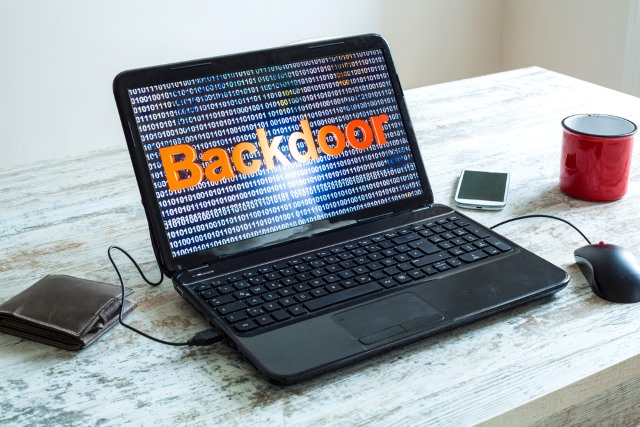
UK government says app developers won’t be forced to implement backdoors
The UK government is sending mixed messages about how it views privacy and security. Fears have been mounting since Prime Minister David Cameron wondered aloud "in our country, do we want to allow a means of communication between people which we cannot read?" -- his view obviously being that, no, we don’t want to allow such a thing.
Following the revelations about the spying activities of the NSA and GCHQ, public attention has been focused more than ever on privacy and encryption, Cameron having also suggested a desire to ban encryption. Today, some fears were allayed when it was announced that the government was not seeking to require software developers to build backdoors into their products. That said, the government said that companies should be able to decrypt 'targeted' data when required, and provide access to it.

Politicians panic after law change could leave them open to surveillance
The world of politics is filled with people who many would consider to be out of touch with real life. All too often politicians are treated differently, and this has certainly been the case when it comes to NSA and GCHQ surveillance of phone and internet traffic. In the UK a court has ruled that a ban on intercepting politicians' communication is not valid.
The Wilson Doctrine -- named after former prime minister Harold Wilson -- stated that "there [will] be no tapping of the telephones of Members of Parliament". This has now been ruled to have no legal force, sending politicians into a fit of panic. They are due to hold an emergency debate next week.
